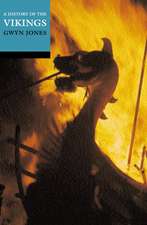General Todleben's History of the Defence of Sebastopol, 1854–5: A Review: Cambridge Library Collection - Naval and Military History
Autor William Howard Russellen Limba Engleză Paperback – 21 mar 2012
Din seria Cambridge Library Collection - Naval and Military History
-
 Preț: 162.51 lei
Preț: 162.51 lei - 23%
 Preț: 727.65 lei
Preț: 727.65 lei - 23%
 Preț: 1194.31 lei
Preț: 1194.31 lei - 23%
 Preț: 723.38 lei
Preț: 723.38 lei - 23%
 Preț: 2564.26 lei
Preț: 2564.26 lei - 19%
 Preț: 449.10 lei
Preț: 449.10 lei - 23%
 Preț: 2059.90 lei
Preț: 2059.90 lei - 23%
 Preț: 1727.60 lei
Preț: 1727.60 lei -
 Preț: 479.92 lei
Preț: 479.92 lei -
 Preț: 421.04 lei
Preț: 421.04 lei - 19%
 Preț: 501.85 lei
Preț: 501.85 lei -
 Preț: 420.65 lei
Preț: 420.65 lei - 19%
 Preț: 732.43 lei
Preț: 732.43 lei -
 Preț: 370.60 lei
Preț: 370.60 lei -
 Preț: 313.47 lei
Preț: 313.47 lei -
 Preț: 369.62 lei
Preț: 369.62 lei -
 Preț: 407.40 lei
Preț: 407.40 lei -
 Preț: 467.12 lei
Preț: 467.12 lei -
 Preț: 278.04 lei
Preț: 278.04 lei -
 Preț: 263.45 lei
Preț: 263.45 lei -
 Preț: 466.14 lei
Preț: 466.14 lei -
 Preț: 327.65 lei
Preț: 327.65 lei -
 Preț: 420.43 lei
Preț: 420.43 lei -
 Preț: 279.57 lei
Preț: 279.57 lei -
 Preț: 373.10 lei
Preț: 373.10 lei -
 Preț: 534.25 lei
Preț: 534.25 lei - 19%
 Preț: 540.00 lei
Preț: 540.00 lei
Preț: 366.95 lei
Nou
Puncte Express: 550
Preț estimativ în valută:
70.22€ • 72.87$ • 58.70£
70.22€ • 72.87$ • 58.70£
Carte tipărită la comandă
Livrare economică 15-29 martie
Preluare comenzi: 021 569.72.76
Specificații
ISBN-13: 9781108044684
ISBN-10: 1108044689
Pagini: 340
Dimensiuni: 140 x 216 x 19 mm
Greutate: 0.43 kg
Editura: Cambridge University Press
Colecția Cambridge University Press
Seria Cambridge Library Collection - Naval and Military History
Locul publicării:Cambridge, United Kingdom
ISBN-10: 1108044689
Pagini: 340
Dimensiuni: 140 x 216 x 19 mm
Greutate: 0.43 kg
Editura: Cambridge University Press
Colecția Cambridge University Press
Seria Cambridge Library Collection - Naval and Military History
Locul publicării:Cambridge, United Kingdom
Cuprins
Preface; 1. Our first victories; 2. The early and late histories; 3. The Russian history; 4. The march of Russia; 5. The ascent of the Czars; 6. Menschikoff's mission; 7. Declaration of war; 8. Siege of Silistria; 9. Defenceless Russia; 10. The Russian armies; 11. The forces of the Allies; 12. The condition of Sebastopol; 13. The state of Sebastopol; 14. Menschikoff surprised; 15. Selection of the Alma; 16. The choice of landing-places; 17. The night before the battle; 18. The Russian position; 19. The English order of battle; 20. The Russian left engaged; 21. Canrobert and Bosquet; 22. The English begin to move; 23. A check to the French; 24. The English on the right; 25. The English fire; 26. The capture of the Epaulement; 27. The second attack on the Epaulement; 28. Retreat of the Wladimir Regiment; 29. The retreat of the Russians; 30. Russian reasons for their defeat; 31. Causes of the defeat; 32. Delay after victory; 33. Condition of Sebastopol; 34. The works of Sebastopol; 35. Menschikoff's flank march; 36. The sinking of the fleet; 37. The Allies on the Belbeck; 38. State of the North Fort; 39. The flank march; 40. Manschikoff's flank march; 41. Sir John Burgoyne's vindications; 42. Sir John Burgoyne's remarks; 43. Sir John Burgoyne's policy; 44. An advance northward; 45. Surrender of Balaklava; 46. State of the north side; 47. Preparations to resist; 48. Reinforcements for Sebastopol; 49. Korniloff's influence; 50. The first trench opened; 51. The new works; 52. Opposite the English; 53. The English works; 54. Reasons for and against an assault; 55. The first day's fire; 56. The Russians recover spirits; 57. The French again succumb; 58. The economy of Matériel; 59. The actions before Balaklava; 60. Rout of the Turks; 61. The first Russian advance; 62. The light cavalry; 63. The French chasseurs; 64. The results of the action; 65. The effect at Sebastopol; 66. 'Little Inkerman'; 67. General Sir De Lacy Evans' despatch; 68. The French batteries; 69. Peril of the flagstaff bastion; 70. Probable issue of an assault; 71. The opposing forces; 72. The allied strength and position; 73. The nature of the ground; 74. Dispositions for Inkerman; 75. Soïmonoff's advance; 76. Attack the camp; 77. Attack Adams's Brigade; 78. The precision of the British fire; 79. Retreat of the 17th Division; 80. The relative numbers; 81. Dannenberg's advance; 82. The Guards rally; 83. Cathcart's disaster; 84. The artillery conflict; 85. The French are summoned; 86. The Russians defeated; 87. The pursuit; 88. Escape of the Russian artillery; 89. The losses; 90. The superiority of English fire-arms; 91. Close of the first period of the siege; 92. The Redan and the British; 93. Moral effect of Inkerman; 94. The great storm; 95. Russian philanthropists; 96. Good Samaritans; 97. The winter begins; 98. British insouciance; 99. The rifle pits; 100. Increase of lodgements; 101. Comparison between French and English; 102. Information to the enemy; 103. The Russian commissariat; 104. The chaos of Balaklava; 105. Russian supplies; 106. Russian transport; 107. Cost of the war; 108. The war of mines; 109. The French take our light attack; 110. Fears for Perekop; 111. Attack on Eupatoria; 112. Todleben's opinion of our troops; 113. The result of delay; 114. Want of forethought; 115. Concluding remarks; Appendices.
Descriere
Russell's thorough 1865 review of the Russian military engineer Todleben's work emphasises its importance to historians of the Crimean War.
















